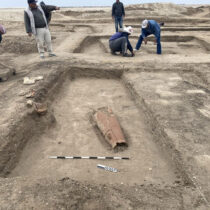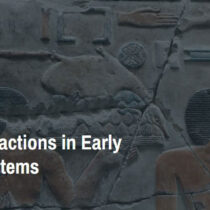A graduate student conference sponsored by Harvard University’s Department of the Classics. The conference will take place on March 5, 2016 and the keynote speaker is Jonathan Prag (Oxford).
The conference aims to bring together graduate students from various subdisciplines in Classics and related fields to reflect on the emergence of ancient empires. The aim is to challenge traditional approaches that often isolate certain periods and regions and that therefore tend towards teleological rather than contingent approaches to empires. Welcome are papers that address how entities, which we now identify as empires, exercised power on the ground while building their imperial structures; how locals experienced the process of empire building; how ancient and modern narratives have shaped current approaches to empires; and how new frameworks and methodologies can help us move towards contingent, processual histories of empires.
Possible questions to be addressed include but are by no means limited to the following:
-How can we study imperialism from a microhistorical perspective?
-How can we look at the ‘ugly side’ of ancient imperialism?
-How is the practice of imperialism manifested in the material record (e.g. epigraphic sources, the built environment, art)?
-To what extent can we see Rome as a Hellenistic kingdom?
-How do individual texts or authors negotiate the relationship between ideologies of empire and the exercise of power (e.g. Herodotus, Thucydides, Xenophon, Demosthenes, Megasthenes, Cicero, Lucan, Pliny the Younger)?
-How does the practice of imperialism influence ancient philosophical discussions of power, citizenship, and cosmopolitanism?
-When and how does the ancient terminology and discourse of imperialism arise?
-How have ancient and modern narratives (e.g. Polybius, Droysen, Gibbon, Mommsen) influenced the scholarly discourse surrounding imperialism?
-How is our notion of empire in antiquity shaped by the reception of ancient imperialism (e.g. by the British Empire, Persian shahs, Napoleon’s classicizing ambition, German philhellenism)?
-How can network theory move our understanding of imperialism forward?
-How can techniques from the digital humanities improve our understanding of imperialism?
Anonymized abstracts of no more than 300 words should be submitted to [email protected] by December 1, 2015. Presentations will be 20 minutes long. Participants will be notified via email by mid December.





